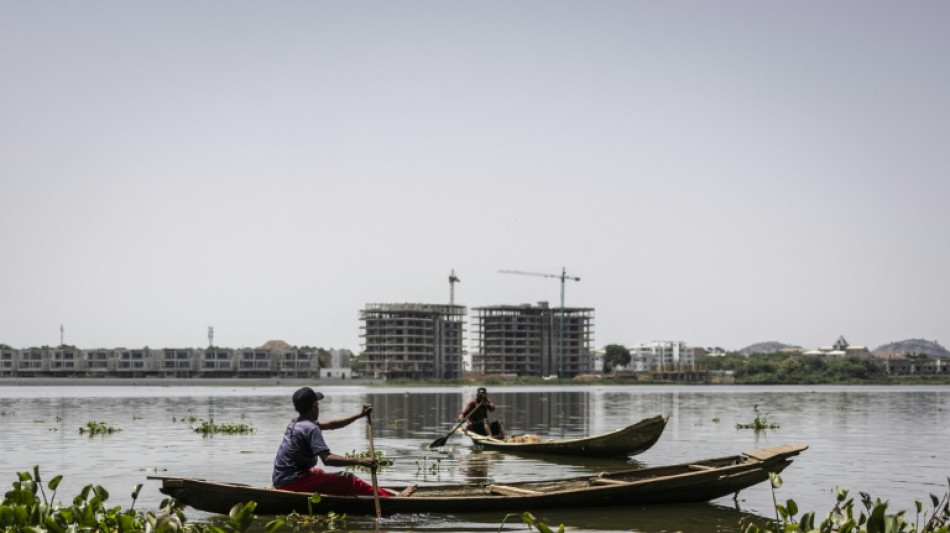
-
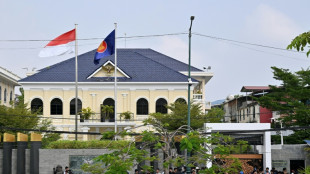 Over 1,400 Indonesians left Cambodian scam groups in five days: embassy
Over 1,400 Indonesians left Cambodian scam groups in five days: embassy
-
Raducanu to 're-evaluate' after flat Australian Open exit

-
 Doncic triple-double leads Lakers comeback over Nuggets, Rockets down Spurs
Doncic triple-double leads Lakers comeback over Nuggets, Rockets down Spurs
-
Bangladesh will not back down to 'coercion' in India T20 World Cup row

-
 Alcaraz comes good after shaky start to make Australian Open third round
Alcaraz comes good after shaky start to make Australian Open third round
-
Trump departs for Davos forum again after switching to new plane: AFP

-
 Impressive Gauff storms into Australian Open third round
Impressive Gauff storms into Australian Open third round
-
Dazzling Chinese AI debuts mask growing pains

-
 Medvedev battles into Melbourne third round after early scare
Medvedev battles into Melbourne third round after early scare
-
Denmark's Andresen upstages sprint stars to take Tour Down Under opener

-
 Turkey's Sonmez soaks in acclaim on historic Melbourne run
Turkey's Sonmez soaks in acclaim on historic Melbourne run
-
Sheppard leads Rockets to sink Spurs in Texas derby

-
 Sabalenka shuts down political talk after Ukrainian's ban call
Sabalenka shuts down political talk after Ukrainian's ban call
-
Trump's plane returns to air base after 'minor' electrical issue: White House

-
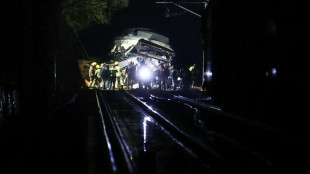 Barcelona train crash kills 1 in Spain's second deadly rail accident in days
Barcelona train crash kills 1 in Spain's second deadly rail accident in days
-
North produces enough nuclear material a year for 10-20 weapons: S. Korea president

-
 Japan ex-PM Abe's alleged killer faces verdict
Japan ex-PM Abe's alleged killer faces verdict
-
Climate change fuels disasters, but deaths don't add up
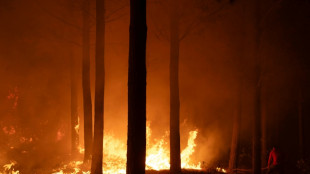
-
 Stocks stable after tariff-fuelled selloff but uncertainty boosts gold
Stocks stable after tariff-fuelled selloff but uncertainty boosts gold
-
What growth?: Taiwan's traditional manufacturers miss out on export boom

-
 'Super-happy' Sabalenka shines as Alcaraz gets set at Australian Open
'Super-happy' Sabalenka shines as Alcaraz gets set at Australian Open
-
With monitors and lawsuits, Pakistanis fight for clean air
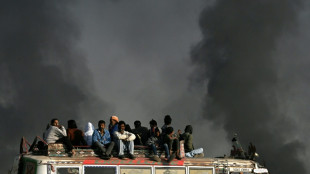
-
 Sabalenka sets up potential Raducanu showdown at Australian Open
Sabalenka sets up potential Raducanu showdown at Australian Open
-
Chile president picks Pinochet lawyers as ministers of human rights, defense

-
 Osaka says 'I'm a little strange' after Melbourne fashion statement
Osaka says 'I'm a little strange' after Melbourne fashion statement
-
UN report declares global state of 'water bankruptcy'
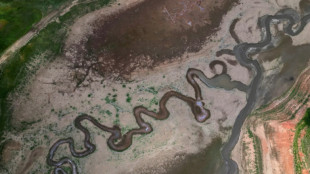
-
 Trump heads for Davos maelstrom over Greenland
Trump heads for Davos maelstrom over Greenland
-
Ukraine's Oliynykova wants Russian, Belarusian players banned from tennis

-
 Kasatkina cannot wait to be back after outpouring of Melbourne support
Kasatkina cannot wait to be back after outpouring of Melbourne support
-
Chile blaze victims plead for help from razed neighborhoods
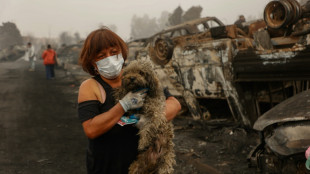
-
 Russian minister visits Cuba as Trump ramps up pressure on Havana
Russian minister visits Cuba as Trump ramps up pressure on Havana
-
World order in 'midst of a rupture': Canada PM Carney tells Davos

-
 Senegal's 'historic' AFCON champs honoured with parade, presidential praise
Senegal's 'historic' AFCON champs honoured with parade, presidential praise
-
Audi unveil new car for 2026 Formula One season

-
 Man City humiliated, holders PSG stumble, Arsenal remain perfect
Man City humiliated, holders PSG stumble, Arsenal remain perfect
-
Vinicius, Real Madrid need 'love' not whistles: Bellingham

-
 Late Suarez winner stops Champions League holders PSG in Lisbon
Late Suarez winner stops Champions League holders PSG in Lisbon
-
Frank seeks Spurs 'momentum' after beating Dortmund

-
 Jesus' 'dream' brace at Inter fires Arsenal into Champions League last 16
Jesus' 'dream' brace at Inter fires Arsenal into Champions League last 16
-
US regulator appeals Meta's court victory in monopoly case

-
 Netflix shares fall as revenue appears to stall
Netflix shares fall as revenue appears to stall
-
Tottenham beat 10-man Dortmund to hand Frank stay of execution

-
 Mbappe, Vinicius help Real Madrid thrash Monaco in Champions League
Mbappe, Vinicius help Real Madrid thrash Monaco in Champions League
-
Men's Fashion Week kicks off in Paris with Louis Vuitton show

-
 Jesus fires Arsenal past Inter and into Champions League last 16
Jesus fires Arsenal past Inter and into Champions League last 16
-
Muted anniversary: Trump marks first year back with grievances

-
 Humiliated Man City have to 'change the dynamic': Guardiola
Humiliated Man City have to 'change the dynamic': Guardiola
-
Golden State's Butler out for season with ACL injury: agent

-
 Venezuela woos US oil majors with new investment czar
Venezuela woos US oil majors with new investment czar
-
Wales Six Nations strike threat just 'speculation' for Tandy


Squeezed by urban growth, Nigerian fishermen stick to tradition
In the shadow of luxury apartment buildings under construction on the shores of the reservoir, Maniru Umar dips his oar into the water, pushing his shallow, wooden canoe forward through thick reeds.
Out of a mix of pride and necessity, Umar and his fellow fishermen in Nigeria's rapidly expanding capital still do things the old-fashioned way, two-men crews working in a deft balancing act as they throw out nets over the side.
"I grew up fishing with my father," said Umar, 20. "As long as I'm still fishing, I'll teach my son how to fish as well."
Across Africa's most populous nation, city living isn't easy. Despite vibrant tech, oil and finance sectors, Nigeria's graft-plagued economy has long struggled to provide enough jobs for its more than 200 million-strong population.
As the country rapidly urbanises, passing down their craft has become both a cultural lifeline and economic lifeline for Abuja's fishermen.
"We only focus on primary and secondary school," said Kabir Suleiman, chairman of the fishermen's village, a settlement of one-room shacks tucked on the rocky shore of Jabi Lake, around 10 minutes drive from downtown Abuja.
Sending children to university is seen as a waste, he said, in a country where graduates often trickle back into the informal sector anyway.
According to the World Bank, Nigeria only tipped into a majority-urban population in 2019 -- a marker the United States passed about a century ago.
On the whole, only sub-Saharan Africa and south Asia have yet to tip from majority rural to majority urban -- and into the drastically different economy that shift brings.
"Nigeria could do a better job of utilising the intellectual, the physical, the behavioural strength of its young and urbanising population," said Ikemesit Effiong, a partner at SBM Intelligence, a Lagos-based consultancy, noting more than half the country is under the age of 30.
Nigeria's urban poor are increasingly made up of people moving from the countryside, he said -- but due to lacklustre public service delivery, they're often unable to access the fruits of urbanisation, from paved roads to clinics and schools.
- Evicted for luxury housing -
The 200 or so fishermen's relationship with Abuja's growth has been mixed.
There are far more people to sell fish to in the capital than in the countryside. The city is also safe from "bandits", armed kidnapping gangs that rove the rural hinterlands.
It was urbanisation that brought them here in the first place: the government built the Jabi reservoir dam in 1981. Fishermen from the countryside soon followed.
But regular check-ins from the agriculture ministry have been replaced by the government selling off plots of land for development, Suleiman said.
Nigeria's staggering economic inequality looms over them as luxury housing goes up just feet away from their settlement, which has been displaced twice in three years.
Construction workers have at times cleared paddies and other vegetation -- key fish habitats, Umar said.
But he also wondered if the growing population of fishermen is leaving less fish to catch.
Modern boats dot the lake, rented out by revellers keen for a cruise.
In recent weeks, the fishermen say, surveyors have come to the village, saying it too is being sought by property developers.
Next door is a new restaurant, gated off from the settlement.
Above the entrance gate is a sign: Fisherman Village, Jabi Lake Resort.
The actual Jabi fishermen, meanwhile, have their sights set on self-preservation, no matter what.
"This is our job," Suleiman said. "This is our business, this is the business our fathers have been doing, our parents have been doing."
K.Sutter--VB
